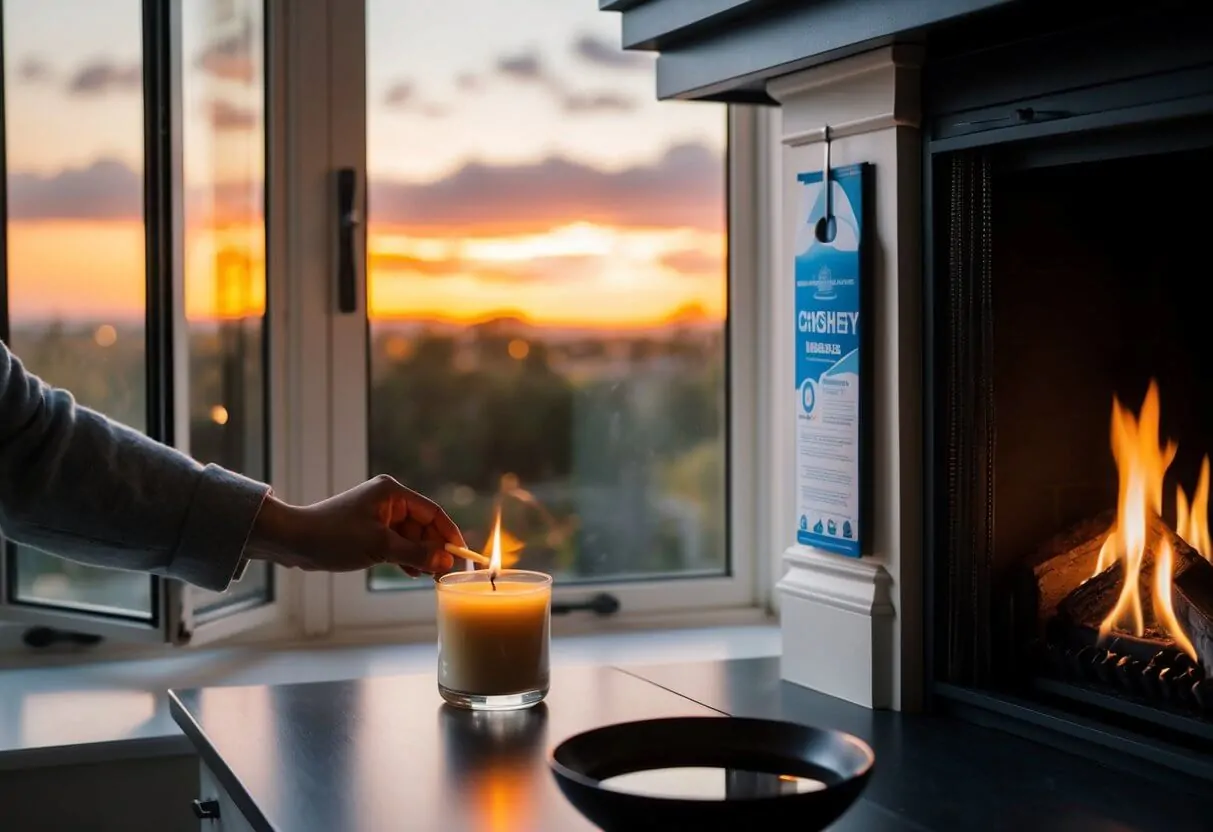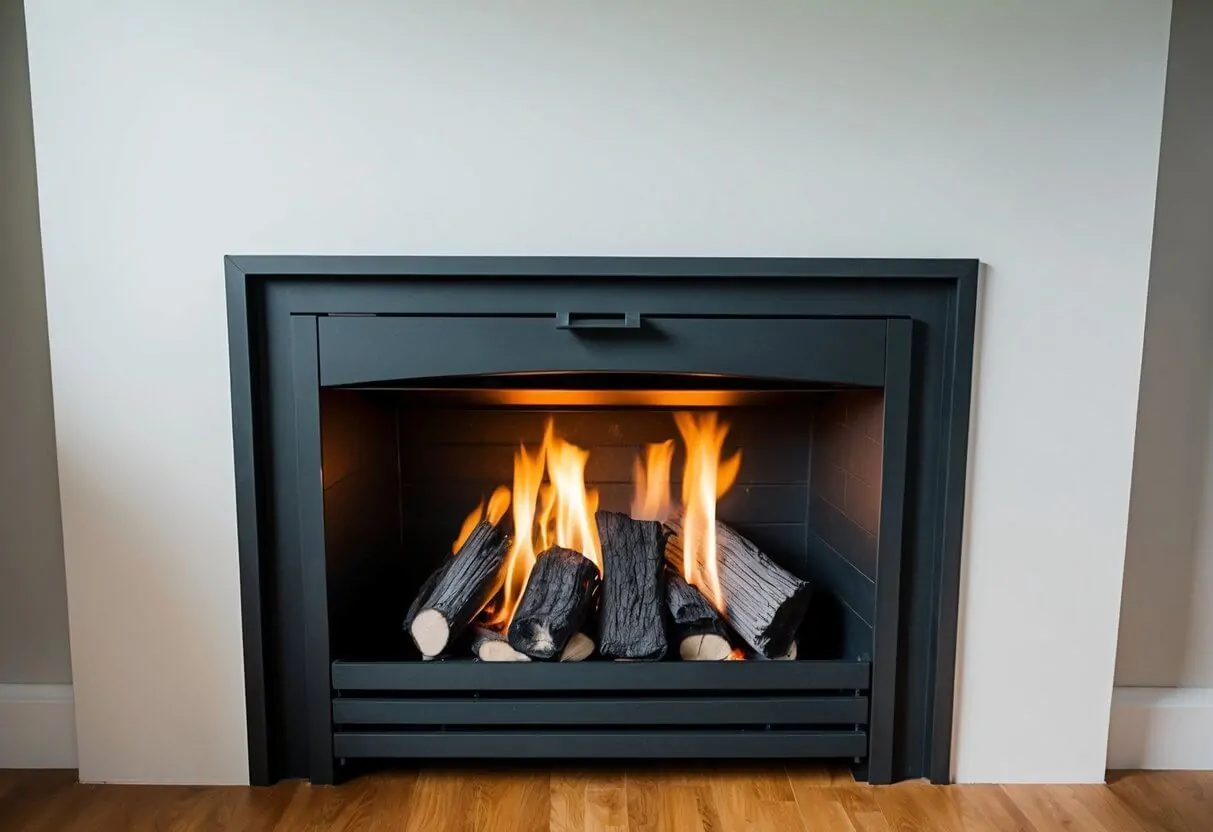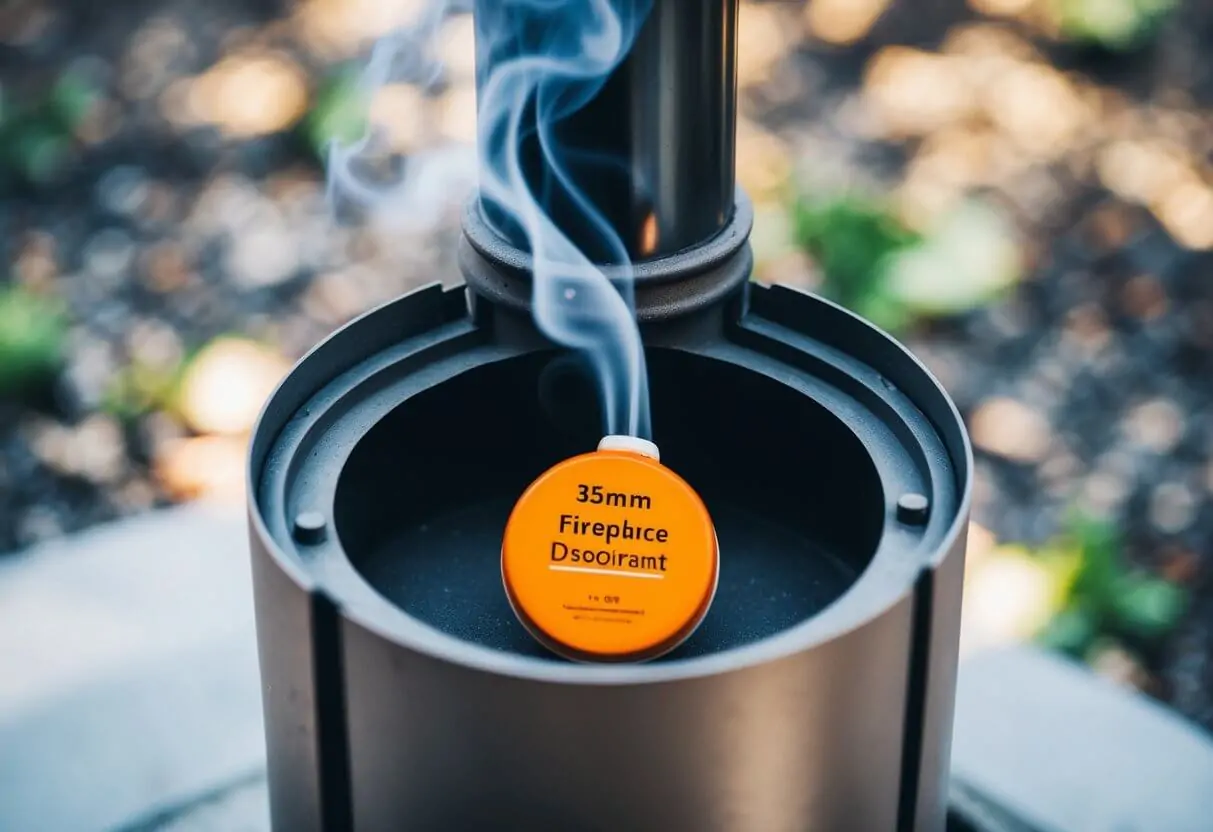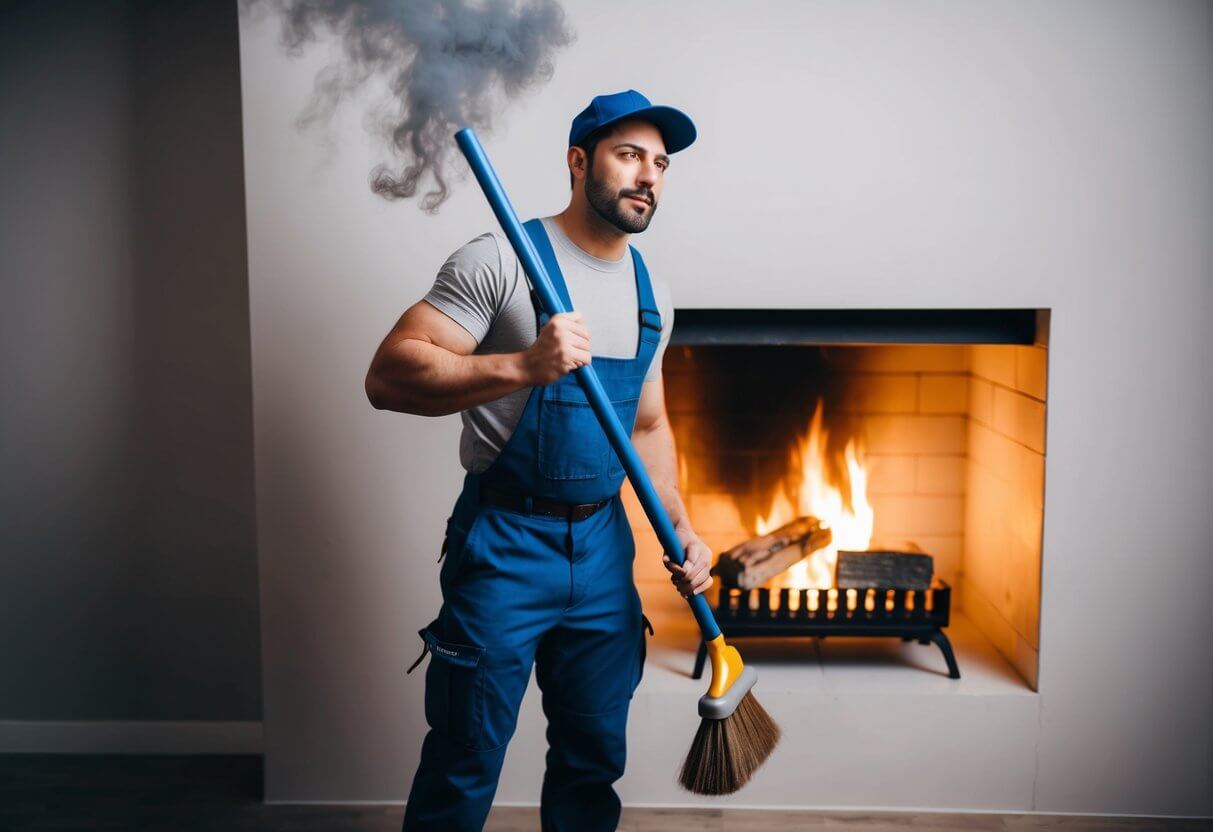4 Ways to Get Rid of Fireplace and Chimney Odors: Effective Solutions for a Fresh Home
Fireplaces can bring warmth and charm to any home, but they sometimes come with an unwelcome guest: unpleasant odors. These smells can range from musty to smoky, potentially affecting the entire living space. While this issue may seem daunting, homeowners need not worry as there are effective solutions available.
Addressing fireplace and chimney odors is essential for maintaining a fresh and inviting atmosphere in your home. From simple DIY methods to professional services, various approaches can help eliminate these unwanted scents and restore the enjoyment of your fireplace.
Key Takeaways
- Fireplace odors can be effectively eliminated using various methods
- Regular maintenance plays a crucial role in preventing unpleasant smells
- Professional services may be necessary for persistent odor issues
Harnessing Charcoal for Odor Elimination
Charcoal serves as a powerful natural odor absorber, making it an excellent choice for tackling fireplace smells. Place a metal container filled with charcoal in your firebox to combat unpleasant odors emanating from your chimney and fireplace. While this method effectively absorbs existing smells, it’s important to note that it doesn’t address the underlying causes of odor production. For long-term solutions, identifying and resolving the root issue remains crucial.
Use Specialized Fireplace Deodorizers
Fireplace deodorizers offer an effective solution for eliminating unpleasant odors. These products come in bottles designed to be placed directly inside the fireplace. To activate the deodorizer, simply pull up the wick on the bottle. The formula works to neutralize smells, providing a fresher environment. A single bottle typically lasts 2-3 months, making it a convenient and long-lasting option for maintaining a pleasant fireplace area.
Engage a Professional Chimney Cleaner
A professional chimney cleaner plays a crucial role in maintaining a fresh-smelling home. Regular cleaning eliminates the root causes of unpleasant odors, such as soot and creosote buildup. These substances not only create foul smells but can also pose fire hazards if left unchecked.
While DIY methods like using charcoal or vinegar can temporarily mask odors, they don’t address the underlying issues. A thorough cleaning by an expert ensures:
- Removal of all debris and buildup
- Identification of potential structural problems
- Improved energy efficiency
- Prevention of chimney fires
Experts recommend annual inspections and cleanings to keep your chimney in top condition. This regular maintenance helps:
- Prevent pest infestations
- Detect moisture issues early
- Remove obstructions like leaves or animal nests
- Assess the need for repairs or waterproofing
Don’t wait for odors to become overwhelming. Schedule a chimney sweep to ensure your fireplace remains a safe and pleasant feature of your home.
Common Questions About Fireplace and Chimney Odors
What causes chimney odors during rainy weather?
Moisture from rain can interact with creosote deposits in the chimney, releasing unpleasant smells. Poor chimney cap installation or damage may also allow water to enter, exacerbating odor issues. Regular cleaning and maintenance can help reduce these moisture-related smells.
Are fireplace smoke odors harmful?
Persistent smoke odors may indicate incomplete combustion or blockages in the chimney. While occasional light smells are normal, strong or constant odors could point to potential safety hazards like carbon monoxide buildup. It’s advisable to have a professional inspection if concerned about ongoing smoke smells.
How can I improve my fireplace’s scent?
Several methods can enhance fireplace aromas:
- Place potpourri or scented pinecones in the firebox when not in use
- Use fireplace deodorants with fresh scents
- Burn aromatic woods like cedar or apple wood
- Clean the firebox thoroughly and sprinkle with baking soda
What eliminates odors in unused chimneys?
For chimneys not actively used:
- Clean thoroughly to remove creosote and debris
- Place activated charcoal in the firebox to absorb odors
- Use a chimney deodorizer product
- Ensure proper ventilation and sealing of the flue
How do I neutralize soot smells indoors?
To combat lingering soot odors:
- Ventilate the area thoroughly
- Clean all surfaces with a vinegar solution
- Use air purifiers with activated carbon filters
- Sprinkle baking soda on carpets and upholstery, then vacuum
- Place bowls of white vinegar around the room to absorb odors
Preventing odors in inactive fireplaces
To keep unused fireplaces odor-free:
- Install a top-sealing damper to prevent air exchange
- Keep the chimney clean and well-maintained
- Use a chimney balloon or fireplace plug when not in use
- Place odor-absorbing materials like coffee grounds in the firebox
- Ensure proper humidity levels in your home to discourage mold growth




